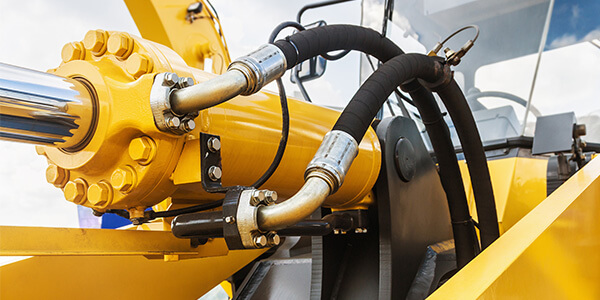
The main source of external leakage in a hydraulic system is through fittings and connections. Leakage in hydraulic systems can quickly get out of hand and the consequences are usually expensive, but can also be hazardous to personnel and the environment. Thankfully,most external leakages can be prevented through proper design, assembly, operation and maintenance of your hydraulic system.There are some steps to help you stop a hydraulic fitting from leaking.
Step1.Choose correct hose.
Prevent abrasion by using hoses of the correct length and diameter. Run the hose in the manner specified by the machine manufacturer, making sure it is supported and restrained by all provided hangers and/or brackets.
Step2.Install hydraulic component correctly.
- Both ends are clean inside and out, and that no physical damage has occurred;
- New seals are used and they have been cleaned and lubricated before installation;
- Fittings are not over-tightened–which can distort seals and ferrules, causing metal fatigue or cracking flared ends;
- Fittings are compatible. There are many different thread ends, and some may almostgo together properly, but not quite.
Step 3.Choose correct thread fittings as your request.
For instance, fittings with tapered threads rely on a thread-to-thread seal which can easily result in a spiral leakage path if not assembled or maintained correctly.Connectors which incorporate an elastomeric seal such as UN-O-ring, BSPP, ORFS and SAE four-bolt flange offer far superior seal reliability. So for leak-free reliability, replace pipe-thread connectors with a type that incorporates an elastomeric seal, if possible.
Hydraulic systems are often considered perennial consumers of oil and make-up fluid an inherent cost of operating hydraulic equipment. However, a leak-free hydraulic system should be considered the norm for modern hydraulic machines – not the exception. But the proper selection, installation and maintenance of hydraulic conductors and their connections are essential to ensure leak-free reliability.
If you have any questions about how to prevent hydraulic fittings leak, please feel free to contact QC Hydraulics.
